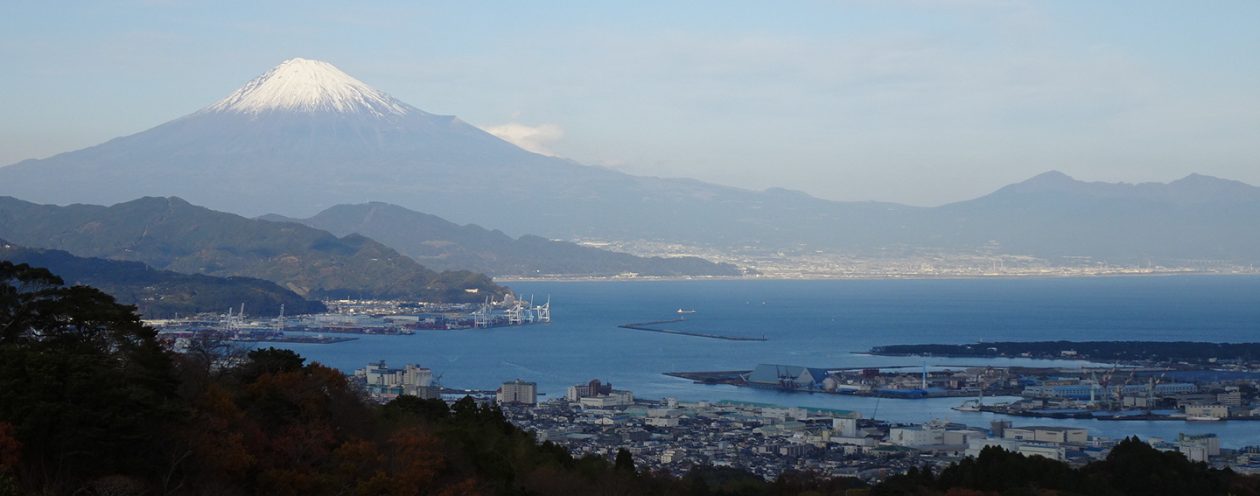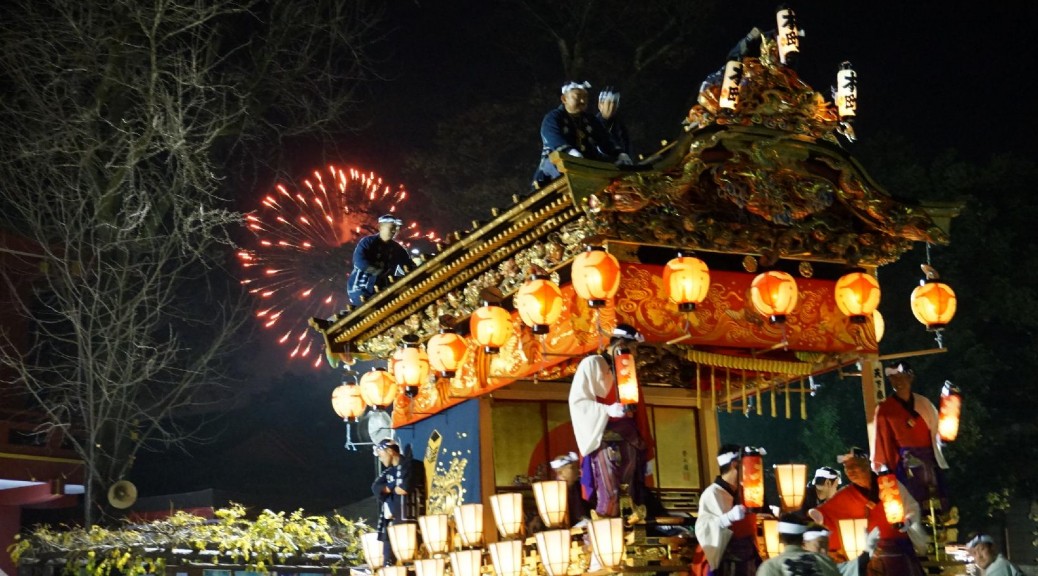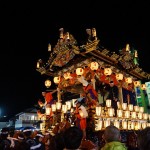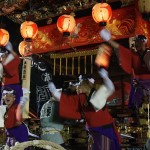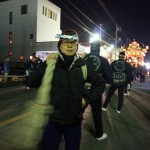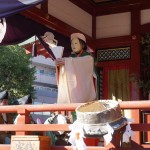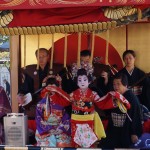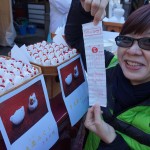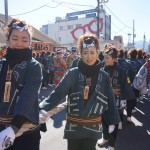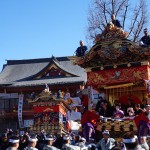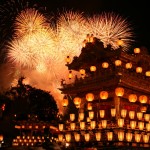S-14 Chichibu night festival
December 3rd.
What is Chichibu Yomatsuri(Night Festival)?
The Chichibu Yomatsuri(Night Festival), which started around 300 years ago, is now known as one of the three most popular float festivals in Japan, along with the Kyoto Gion Festival and the Hida Takayama Festival. There are 6 floats including 2 called “Kasaboko” which means flower parasols.
This festival is held on December 2-3, every year.
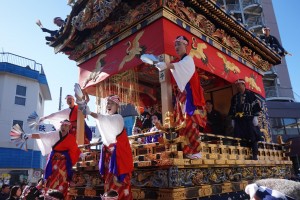
The Chichibu Yomatsuri(Night Festival) is the grand festival of Chichibu Shrine. People pull gorgeous floats around Chichibu, while kabuki is performed inside the floats. Fireworks light up the night sky and attract many visitors. The festival has its origins in the middle of the Edo period with the development of the silk market which had opened up in the grounds of the shrine. The charm of the festival lies in the rich colors of the the paper-covered lanterns (“Bonbori”) which sway on the floats against a backdrop of fireworks in the winter sky.
“Chichibu Festival floats and Kagura (a Shinto theatrical dance)” are registered as a UNESCO Intangible Cultural Heritage.
– Yatai & Kasaboko ( Traditional Japanese festival float and flower parasol )
Inside the floats, people play the taiko drums while the floats are pulled around the town. The gorgeous floats were designated as Important Tangible Folk Cultural Assets in 1962. The four floats belong to the four local communities of Miyaji, Kami-machi, Naka-machi and Moto-machi, and community members take it in turns to perform Kabuki in the floats each year. Special overhanging stages are added to the each side of the float for the performers.
There are also two “Kasaboko” or flower parasol floats, Nakachika and Shitagou. They incorporate objects that represent a divine spirit and have a long pillar standing in the middle which has a triple layer of parasols on top decorated with flowers. However, because electricity transmission wire was installed on the route of the Kasaboko in 1921, the original form of the Kasaboko cannot be reconstructed, and now it is pulled as a Yakata (festival float).
– Fireworks
The fireworks provide a gorgeous backdrop to the floats. In Japanese, the word for fireworks literally means “flowers in the sky”.
The “Shakudama” and the “Star Mine”( types of fireworks ) are launched from Hitsujiyama Park, which is famous for its phlox flowers in the spring.
Many people think that fireworks are a symbol of summer in Japan, but in Chichibu, they are a symbol of winter.
The fireworks are more vivid and dynamic in the clear night skies of winter, and much loved by the children of Chichibu. Star mine is the fireworks that are fired off in quick succession.
– Kabuki performance on the Yatai
The local communities staging kabuki performances on their floats start preparations to determinate the program and cast the performers more than one year in advance. They start practicing in earnest in the spring.
As the kabuki performances on the floats became popular, each community competed with each other.
When one community staged a Kabuki performance, others went to watch..
The unique style of staging on the float, assembling the performers and performing it is uncommon in Japan.
– Kame no ko ishi ( turtle stone ) & Suwa Shrine
Chichibu Shrine’s Goddess Myoken and Mt. Buko’s Shenmaru dragon God meet once a year in the festival of Chichibu shrine. It is also known as a “winter version of the Tanabata story”.
Strangely, the Chichibu shrine, Kame no ko ishi (turtle stone), and Buko mountain are lined up on a straight line on the map, and the Polaris star can be found on a line extending to the north.
Nowadays, the parade of the festival goes to “Kame no ko ishi” through the Motomachi Street, whereas previously people passed along the Bamba Street in front Chichibu Shrine.
When the parade passes near Suwa shrine, everyone becomes quiet and musicians stop accompaniment to show respect for the Gods. This is called “O Suwa watari (wandering)” and is still being done at the Festival.
This is the one of religious encents which originates in the Suwa faith that was rooted in the Chichibu district before the Goddess Myoken was enshrined in the Chichibu Shrine, and it seems that it is an event named after the God Suwa who is thought to be the protector in this area.
/// FIT package
We can arrange this tour for individual, family, or the small group, following to your designated year, but the day is fixed only December 3rd.
/// Itinerary
11:30 Meet at Chichibu or Seibu Chichibu station, then guide takes you these area by walk.
View Points:
- Yatai & Kasaboko
- Kabuki performance on the Yatai
- Chichibu Srine, Suwa Sheine, Turtle Stone
- Fireworks (19:30-22:00)
- Local food market
** You can take lunch here, or everywhere aside the load, at the stall or local diner restaurant.
22:30 Return to Chichibu station, then finish the tour.
/// Price
| Number of Guests |
1 | 2 | 3 | 4-5 | 6 or more (Max 10) |
| Price / person (Yen) |
83,000 | 42,000 | 29,000 | 22,000 | 32,000 |
Price Include:
- English (or other languages) speaking guide
(English, Chinese, French, German, Italian, Spanish, Portuguese, Dutch, Russian, Thai) - Commission for arrangements
- Commission for settlements by credit card
- Consumption tax
Price Exclude:
- Transportation costs to the meeting place / ending place
- Accommodation costs
- Food and beverage fee for customers and guide
- Souvenir fee / personal expenses
- Expenses for services not described in the itinerary
Regarding these standard courses, we can arrange the plan upon your request by adding / deleting destinations, and combining other courses before and after, making reservations of accommodation, transportation, restaurants, or event tickets, etc. Please contact us by all means.
Please see here for the arrangement fee.
ex.1 Arrangement for accommodation
Room charge 10,000yen(1night 1person) + Commission 1,650yen(incl. c-tax)=Total 11,650yen
ex.2 Arrangement for additional transportation
Super express train 20,000yen(1person) + Commission 3,300yen(incl. c-tax)=Total 23,300yen
/// Cancellation Policy
Cancellation Policy for this course;
| Days to Departure | Cancellation Charge |
| More than 31 days | 10,000JPY |
| 30-15 days | 50% of trip price, Min 10,000JPY |
| 14-8 days | 70% of trip price, Min 10,000JPY |
| 7 days or Less, No Show | 100% of trip price |
Please refer to “Price, Terms and Conditions” for other detailed regulations.
/// Application Form
Please select the course and fill in the below box;
👆👆👆
Note: This green button means “Submit“.
/// Payment
Payment can be settled by credit card (Paypal or Stripe).
After your booking, we will send you an invoice, then after your payment by credit card, the booking would be completed.
/// Contact
If you have any questions or offer to book, please send an email. We welcome even little questions! Don’t hesitate, and see you in Japan!!
Contact us: info@i-travel-square.tokyo
